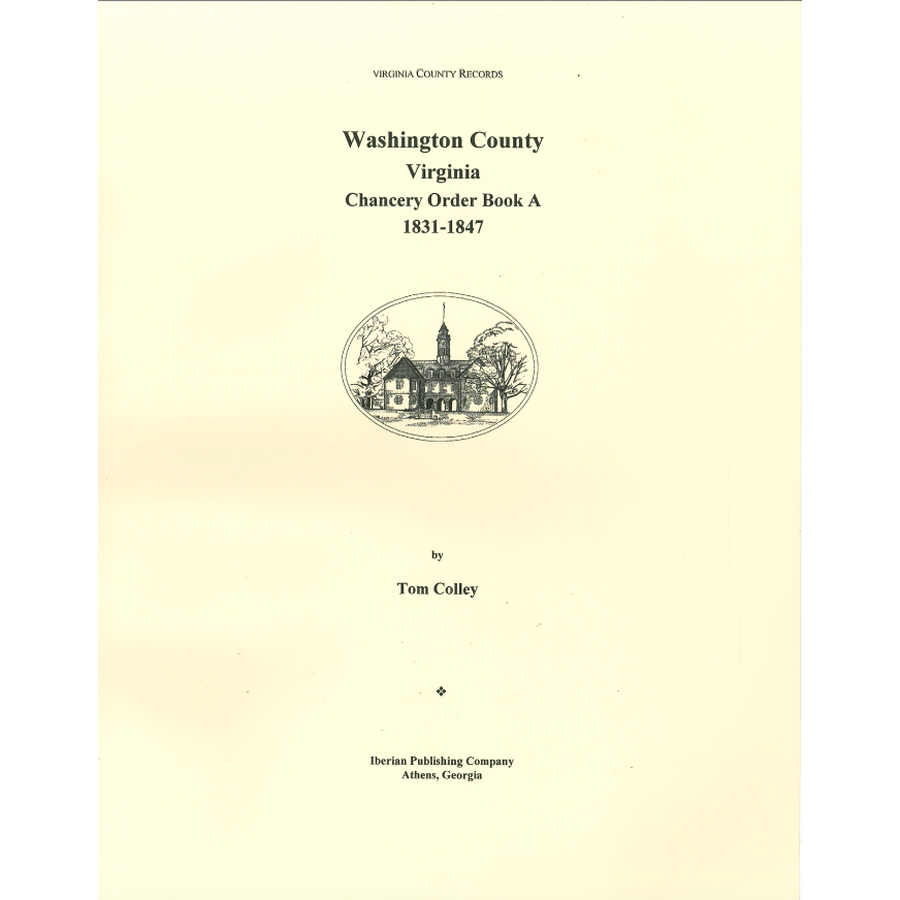Washington County, Virginia Chancery Order Book A, 1831-1847
Couldn't load pickup availability
In the record room of any courthouse, there are often two types of records of proceedings of court cases. The first of these are common law records, dealing with cases in which someone has been accused of breaking the law. The person charged with breaking the law must face either a judge, or a judge and jury. The second type are chancery records, involving cases in which one person or persons bring suit against another person or persons to settle differences between them. These civil matters can include such things as disagreement over a business arrangement, nonpayment for services rendered, differences among family members over the settlement of an estate, etc. In the colonial period, both common law and chancery records were kept by the clerk in the same order book. Occasionally the clerk might refer to the proceedings of a particular day, stating that the court that day was "on the chancery side," i.e., they were hearing only chancery cases that day.
The Order Book contains the essential information regarding the plaintiff and defendant; it is not the entire chancery record (oftentimes a single case can run through dozens or even hundreds of pages); rather the order book is the court's guide to the process. It is invaluable to genealogical research in that it allows a quick search of decades of chancery causes within a given county. In the case of Washington county, Virginia, where chancery records of this period were destroyed by Union vandalism, it is the only record we have of the court process.
Thomas Colley
2012, 8.5" x 11", index, 175 pp.
107-WCBA
